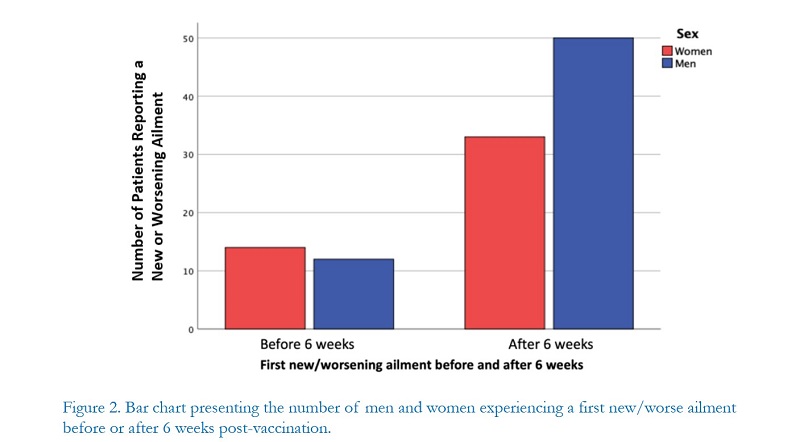The reporting of adverse events is probably not long enough to capture new or worsening health problems after the COVID-19 vaccine administration.
¨Abstract:
... Hypothesis. Here, we posit that the reporting period for AEs [adverse events] related to the COVID-19 vaccines may need to be longer.
Method. In this retrospective, observational study, we aimed to assess the chronology of new/worsening ailments occurring after the administration of COVID-19 vaccines based on the changes to the participants’ pharmacological records. Patients vaccinated against COVID-19 and experiencing health-related events during the study period (between September 30, 2021 and July 15, 2022) were included and the changes to their pharmacological records were analyzed.
Results. One hundred and twelve (112) adult patients (63 men, 49 women; 67.54 ± 14.55 years-old; mean ± standard deviation) have reported changes to their pharmacological record following health-related events, which occurred 11.57 weeks (median; range 0.04-47.14) following their last COVID-19 injection of 3 doses (median; range 1-4). The most frequent medical ailments that appeared or worsened were cardiovascular diseases (CVD; N=61), cancer (N=31), respiratory diseases (RD; N=22) and zona (N=10), half of which occurred after the second dose. Nineteen (19) patients (10 men, 9 women; 78.2 ± 11.4 years-old) died on average 17.14 weeks (SD 13.71) after their last injection.
Conclusion. Most (76.1%) of the health-related events experienced by patients vaccinated against COVID-19 occurred beyond the 6-week period prescribed by the health authorities. Our findings call for further investigations and an extension of the post-vaccination AE reporting period."

Copyright (c) 2023 Hélène Banoun, Patrick Provost
This work is licensed under a Creative Commons Attribution-NonCommercial-NoDerivatives 4.0 International License.
